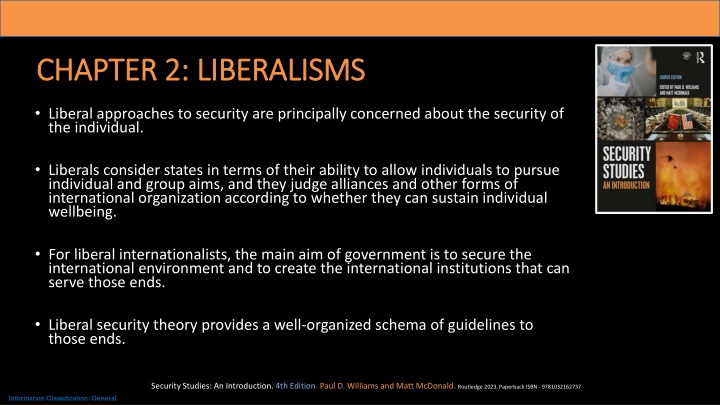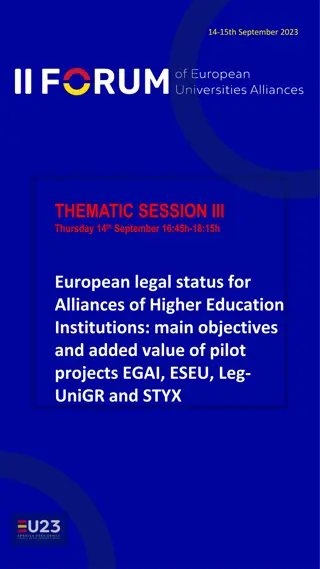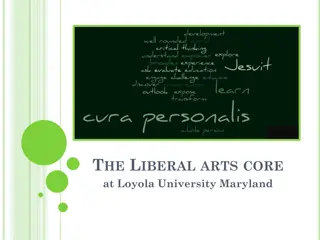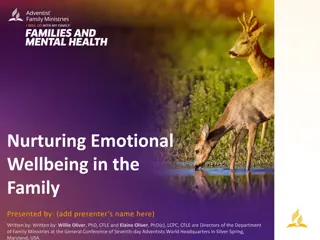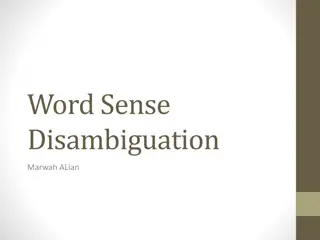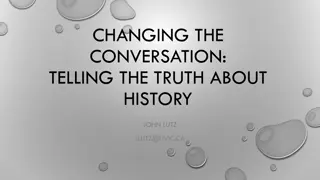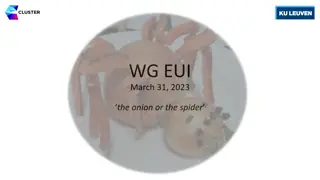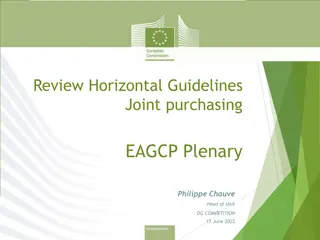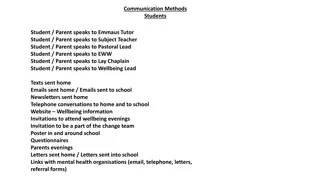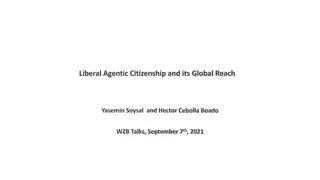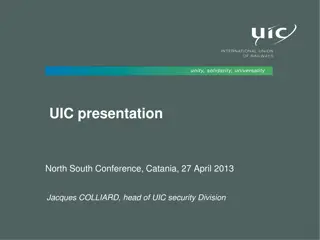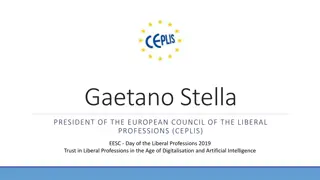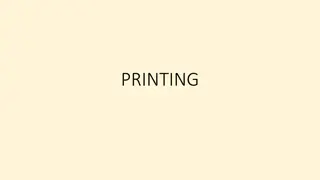Liberal Approaches to Security: Individual Wellbeing and International Alliances
Liberals prioritize individual security and emphasize states' role in enabling individuals to pursue their goals. They evaluate alliances based on their impact on individual welfare and group interests.
Download Presentation

Please find below an Image/Link to download the presentation.
The content on the website is provided AS IS for your information and personal use only. It may not be sold, licensed, or shared on other websites without obtaining consent from the author.If you encounter any issues during the download, it is possible that the publisher has removed the file from their server.
You are allowed to download the files provided on this website for personal or commercial use, subject to the condition that they are used lawfully. All files are the property of their respective owners.
The content on the website is provided AS IS for your information and personal use only. It may not be sold, licensed, or shared on other websites without obtaining consent from the author.
E N D
Presentation Transcript
CHAPTER 2: LIBERALISMS CHAPTER 2: LIBERALISMS Liberal approaches to security are principally concerned about the security of the individual. Liberals consider states in terms of their ability to allow individuals to pursue individual and group aims, and they judge alliances and other forms of international organization according to whether they can sustain individual wellbeing. For liberal internationalists, the main aim of government is to secure the international environment and to create the international institutions that can serve those ends. Liberal security theory provides a well-organized schema of guidelines to those ends. Security Studies: An Introduction. 4th Edition. Paul D. Williams and Matt McDonald. Routledge 2023. Paperback ISBN - 9781032162737 Information Classification: General
VARIETIES OF LIBERAL THOUGHT VARIETIES OF LIBERAL THOUGHT Michael Doyle (1998) distinguished ideological, commercial, and international liberalism: In ideational liberalism, the underlying motive is social identity, and conflict will ensue if borders do not accord with social identity. In commercial liberalism, the underlying motivation is economic benefit, which does not necessarily lead to cooperation, but which identifies the circumstances under which the economy can be a peace-producer. In republican and international liberalism, the critical factor is state form. In liberal IR theory, the state is an institution constantly subject to capture and recapture, even construction and reconstruction by coalitions of social actors (Moravcsik 2001: 5). The argument is that states can be integrated into long-term peace arrangements which at the same time encourage democratization and internal state reform. Security Studies: An Introduction. 4th Edition. Paul D. Williams and Matt McDonald. Routledge 2023. Paperback ISBN - 9781032162737 Information Classification: General
TRADITIONAL OR KANTIAN LIBERALISM TRADITIONAL OR KANTIAN LIBERALISM Immanuel Kant s (1724-1804) work is the foundational theory for liberals, especially his warning that a liberal state cannot be secure in its own liberalism and that liberal states must cooperate to build a peaceful environment in which all states can be secure. According to Kant, the only justifiable form of government was republican government, a condition of constitutional rule where even monarchs ruled according to the law. In relation to security, Kant argued that republican states were peace producers ; that is, they were more inclined to peaceful behaviour than other sorts of states. He attributed this to habits of consultation; a citizenry which had to be consulted before going to war would be unlikely to endorse war easily. He also attributed it to the legal foundations of the republican state. Kant argued it was the duty of the republican state to strive towards law regulated international relations; they could not merely be liberal in themselves. Security Studies: An Introduction. 4th Edition. Paul D. Williams and Matt McDonald. Routledge 2023. Paperback ISBN - 9781032162737 Information Classification: General
KANTS THEORY OF KANT S THEORY OF PERPETUAL PEACE PERPETUAL PEACE Kant s peace programme consisted of two parts: 1. The preliminary articles the initial conditions that had to be established before even republican states could make much contribution to a more peaceful international environment. These included the abolition of standing armies, non- interference in the affairs of other states, the outlawing of espionage, incitement to treason and assassination as instruments of diplomacy, and an end to imperial ventures. These had to be abolished by a majority of states. The three definitive articles, which provided the actual foundations for peace: I. The civil constitution of every state should be republican. II. The law of nations shall be founded on a federation of free states. III. The law of world citizenship shall be limited to conditions of universal hospitality. For Kant, spreading republican constitutions to other states was part of the natural orientation of the republican state. The subsequent federation of free states would provide, in effect, a type of collective security system. 2. Security Studies: An Introduction. 4th Edition. Paul D. Williams and Matt McDonald. Routledge 2023. Paperback ISBN - 9781032162737 Information Classification: General
ECONOMIC LIBERALISM ECONOMIC LIBERALISM Dating back to the 18thcentury, it focuses on incentives created by opportunities for trans- border economic transactions (Moravcsik 2001). The argument is that economically liberal states prefer peace to conflict. For example, Adam Smith s Wealth of Nations in 1776, argued that the hidden hand of the market, besides increasing wealth also promoted a lessening of economic hostilities. Liberal trade doctrine, or the theory of douce commerce, held that trade among states, like trade among individuals, was mutually beneficial. Moravcsik (2001:50): trade is generally a less costly means of accumulating wealth than war, sanctions or other coercive means . Some liberals argued that globalization, in the sense of unfettered free trade on a global scale, is also a peace producer (e.g., Friedman 2000). Economic liberals provided agendas for economic reforms and outlined the underlying social and economic conditions that would be necessary for peace. Security Studies: An Introduction. 4th Edition. Paul D. Williams and Matt McDonald. Routledge 2023. Paperback ISBN - 9781032162737 Information Classification: General
THE DEMOCRATIC PEACE THESIS THE DEMOCRATIC PEACE THESIS Liberal states do not fight wars against other liberal states because of their liberalism (Doyle 1983). Liberals offered two main explanations: 1. Liberal institutions had war-restraining features, including the need to ensure broad popular support; the division of powers in democratic states, which produces checks and balances; and the electoral cycle, which makes liberal leadership cautious and prone to avoid risk (Russett 1996). 2. Liberal culture or ideology means liberal states tend to trust other liberal states and expect to resolve conflict through discussion and compromise. Ideologically, liberals trust those states they consider fellow liberal democracies and see no reason to fight them. They view those states they consider illiberal with suspicion, and sometimes believe that the national interest requires war with them (Owen 1996: 153). Despite some criticisms from scholars, the theory that democracies do not fight wars against other democracies has been immensely influential in public policy. Security Studies: An Introduction. 4th Edition. Paul D. Williams and Matt McDonald. Routledge 2023. Paperback ISBN - 9781032162737 Information Classification: General
NEOLIBERAL INSTITUTIONALISM NEOLIBERAL INSTITUTIONALISM Neoliberal institutionalism concentrates on the role of international institutions in mitigating conflict. Its proponents argued that although institutions cannot absolve anarchy, they can change the character of the international environment by influencing state preferences and state behaviour. Hence, they theorised the sorts of international institutions that would be required to mitigate the uncertainty of anarchy but also the nature of the threat that states are likely to face in an un-ruled international order. There is, however, no single model of the most desirable sort of institution. Liberal and realist approaches to developing security systems are compared on slide 8. Security Studies: An Introduction. 4th Edition. Paul D. Williams and Matt McDonald. Routledge 2023. Paperback ISBN - 9781032162737 Information Classification: General
LIBERAL AND REALIST APPROACHES TO SECURITY SYSTEMS COMPARED Structure of the international system help system. Theoretical base Alliance (Realist) Community of Law (Liberal) Social; dynamic; governance without government. Material; static; anarchic; self- Conceptions of security: Basic principles Strategies Accumulation of power. Military deterrence; control of allies. Integration Democratisation; conflict resolution; rule of law. Institutional features: Functional scope Criterion for membership Internal power structure Military realm only. Strategic relevance. Multiple issue areas. Democratic system of rule. Reflects distribution of power; most likely hegemonic. Symmetrical; high degree of interdependence. Decision-making Will of dominant powers prevails. Democratically legitimized. Relation of system to its environment Dissociated; perception of threat. Serves as an attractive model; open for association. Security Studies: An Introduction. 4th Edition. Paul D. Williams and Matt McDonald. Routledge 2023. Paperback ISBN - 9781032162737 Information Classification: General
LIBERALISM AND THE POWER TRANSITION LIBERALISM AND THE POWER TRANSITION Liberals tend to conceptualize global power transitions in terms of hegemonic stability theory . In this situation, the rising power poses a challenge to a liberal hegemon Keohane s (1984) original liberal argument was that the liberal international order is maintained by a liberal hegemon that provides the public goods to maintain the open liberal order. If the liberal hegemon is displaced, liberalism falters. The consequences of a power shift would typically include the risk of temporary disorder and the opportunity of the new hegemon to create its own political and economic order framed by institutional design and backed by superior power resources. Ikenberry (2008) argues that although America s hegemonic position may be declining the liberal international characteristics of order openness, rules, multilateral cooperation are deeply rooted and likely to persist because of the specific features of the Western-centered system created after the Second World War. Security Studies: An Introduction. 4th Edition. Paul D. Williams and Matt McDonald. Routledge 2023. Paperback ISBN - 9781032162737 Information Classification: General
ESSAY / EXAM QUESTIONS ESSAY / EXAM QUESTIONS How far would you say that Kant s conditions for peace have been achieved in the contemporary world order? Why are liberal democratic states more likely to prefer peace to war? What are the arguments for considering free or open trade as the key to peace? Under what conditions will cooperation emerge in a world of egoists without central authority? What is the anarchical condition , and why do liberal institutionalists insist that liberal states cannot avoid war so long as international relations are in such a condition? How suitable are neoliberal institutional theories for dealing with security issues? In your view, has NATO been successfully transformed into a security community ? What are the arguments behind the claim that international organizations can help in preserving peace? Is military intervention inevitable in establishing a durable liberal peace? Security Studies: An Introduction. 4th Edition. Paul D. Williams and Matt McDonald. Routledge 2023. Paperback ISBN - 9781032162737 Information Classification: General
WEBSITES AND AUDIO WEBSITES AND AUDIO- -VISUAL RESOURCES VISUAL RESOURCES Liberalism Stanford Encyclopedia of Philosophy: https://plato.stanford.edu/entries/liberalism/ Woodrow Wilson s war speech (1917): https://www.youtube.com/watch?v=ji6OVy2fK8o Andrew Moravcsik on Liberal Theory International Relations (2/7): https://www.youtube.com/watch?v=7D5FNrqT5dM The Syrian Civil War: Realism vs Liberalism: https://www.youtube.com/watch?v=a4jKFngu3Ps Liberalism University of Oxford podcasts: https://podcasts.ox.ac.uk/keywords/liberalism Michael Doyle on the Kantian Approach to International Affairs: https://www.youtube.com/watch?v=X8tgDKq5HS4 Democratic Peace Theory: A Short Introduction: https://www.youtube.com/watch?v=Q_75neOlW9I Feature films with liberal themes Eye in the Sky (2015): https://www.youtube.com/watch?v=2qTEq6MQ4W8 Hotel Rwanda (2004): https://www.youtube.com/watch?v=4dd8rX5Dy_Q Security Studies: An Introduction. 4th Edition. Paul D. Williams and Matt McDonald. Routledge 2023. Paperback ISBN - 9781032162737 Information Classification: General
